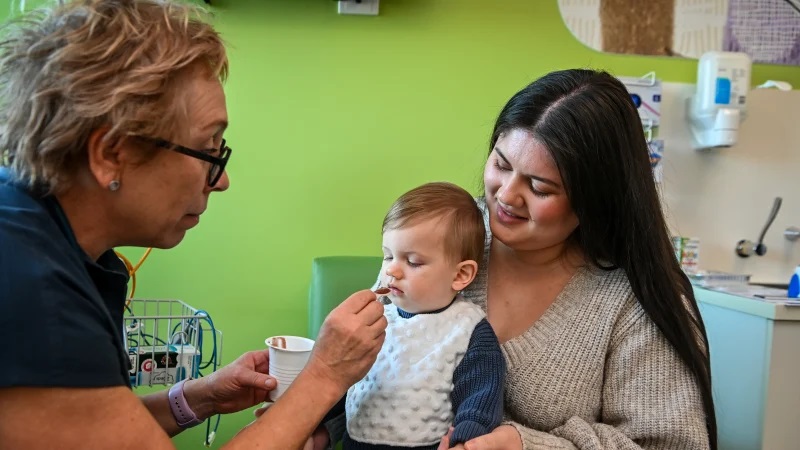
Australia is launching a groundbreaking program to treat peanut allergies in infants, aiming to build immunity to this potentially dangerous condition.
This world-first initiative will involve eligible babies receiving gradually increasing doses of peanut powder over a minimum of two years to help reduce their sensitivity.
While oral immunotherapy has been available in clinical trials and select allergy centers, this is the first national adoption of such a program.
Often referred to as the “allergy capital of the world,” Australia has about 10% of infants diagnosed with food allergies, with peanut allergies affecting approximately 3% of 12-month-olds.
Unlike many other food allergies, peanut allergies are less likely to be outgrown, making them the most prevalent food allergy among school-aged children.
“This might be the game changer we have all wanted to stop this terrible allergy in its tracks,” said Ged Kearney, Assistant Minister for Health.
The free program is available to children under 12 months who have been diagnosed with peanut allergies and are treated at one of ten participating hospitals nationwide.
Each child’s dosing schedule will be individually tailored until they reach a “maintenance dose” for two years, explained Tim Brettig, the program lead.
While some children might experience mild side effects, these typically do not require treatment.
The goal is to increase their tolerance to peanuts and reduce the risk and anxiety associated with accidental exposure.

“In some cases, [the threshold] might be so high that they can eat peanuts freely, while for others, it may be sufficient to prevent allergic reactions from accidental exposures,” said Brettig.
Professor Kirsten Perrett, Director of the National Allergy Centre of Excellence (NACE), emphasized, “Ultimately, we want to change the trajectory of allergic disease in Australia so that more children can go to school without the risk of a life-threatening peanut reaction.”
NACE will monitor the program’s effectiveness and safety, with hopes of expanding it to more hospitals and potentially addressing other food allergies.
Doctors caution that oral immunotherapy should only be conducted under professional supervision and is not suitable for everyone. “It’s definitely not a program for everybody,” Dr. Brettig noted.
Source-BBC





